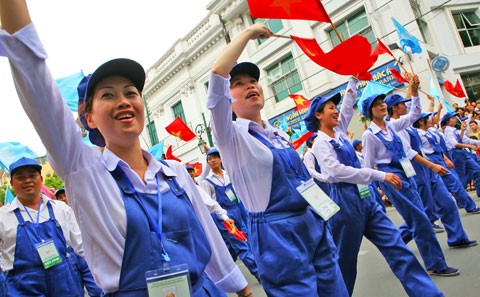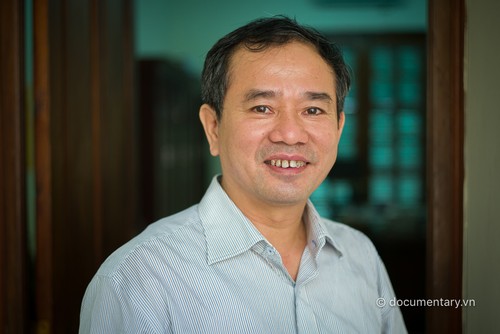 Vietnamese working class is strengthened to serve national development (Photo: Bao Dan) Vietnamese working class is strengthened to serve national development (Photo: Bao Dan) |
Accompanying Vietnam’s national development and international integration, Vietnamese workers have consistently grown in quantity and quality, playing greater roles in all aspects.
Vietnamese working class grows steadily
Vietnam now has nearly 17 million workers, compared to 200,000 workers in 1946, who engage in all economic sectors, professions, and fields. Vietnamese workers’ qualifications have improved consistently. They are capable, creative and responsive to change, quickly acquire advanced technology, and play a decisive role in national economic development. Most workers and employees have firm political stance and trust in the Party leadership and State management.
Workers are the vanguards in implementing the renewal policy initiated by the Party in 1986, the core force in the alliance of workers, farmers and intellectuals, and an important factor in promoting national development and maintaining political-social stability.
 Professor, Doctor Pham Hong Tung, Director of the Institute of Vietnamese Studies and Development Science, Hanoi National University (Photo: Thanh LOng) Professor, Doctor Pham Hong Tung, Director of the Institute of Vietnamese Studies and Development Science, Hanoi National University (Photo: Thanh LOng) |
Professor, Doctor Pham Hong Tung, Director of the Institute of Vietnamese Studies and Development Science, Hanoi National University, said: "The Vietnamese working class continues to be a vanguard social force and represents Vietnam’s historical evolution toward modernization and mastery of the world’s most advanced technology to realize the aspiration for a prosperous and strong Vietnam."
More incentives needed to consolidate Vietnamese working class
The Resolution of the 13th National Party Congress in 2021 defines specific goals and tasks to build a modern and strong Vietnamese working class, considering it an important factor towards national industrialization and modernization and realizing the aspiration for a prosperous, strong, and happy country. Recently, a workshop was held to discuss building a modern and strong Vietnamese working class and promoting its core role in the alliance with farmers and intellectuals, scientists and policy makers.
Many delegates suggested associating the strategy to build a strong working class with the strategy on socio-economic development, national industrialization and modernization, and international integration.
Associate Professor, Doctor Do Thi Thach, former Acting Director of the Institute of Scientific Socialism, Ho Chi Minh National Academy of Politics, said: “The working class is the leading class of the revolution through its vanguard - the Communist Party of Vietnam. The strategy of building a strong working class must be closely linked with the strategy of socio-economic development, national industrialization and modernization and international integration. Otherwise, the working class will not have enough conditions to promote its core role.”
It’s also important to pay attention to improving the material and spiritual life of workers, said Associate Professor Duong Van Sao of the Trade Union University.
“To strengthen the working class, we should focus more on policies on employment, wages, social insurance, social security, social welfare, and social encouragement, and protect the rights and interests of workers,” said Sao.
Building a modern and strong working class is not only a fundamental and strategic social security policy, but also a guarantee of resources and a decisive driving force for national construction and development.